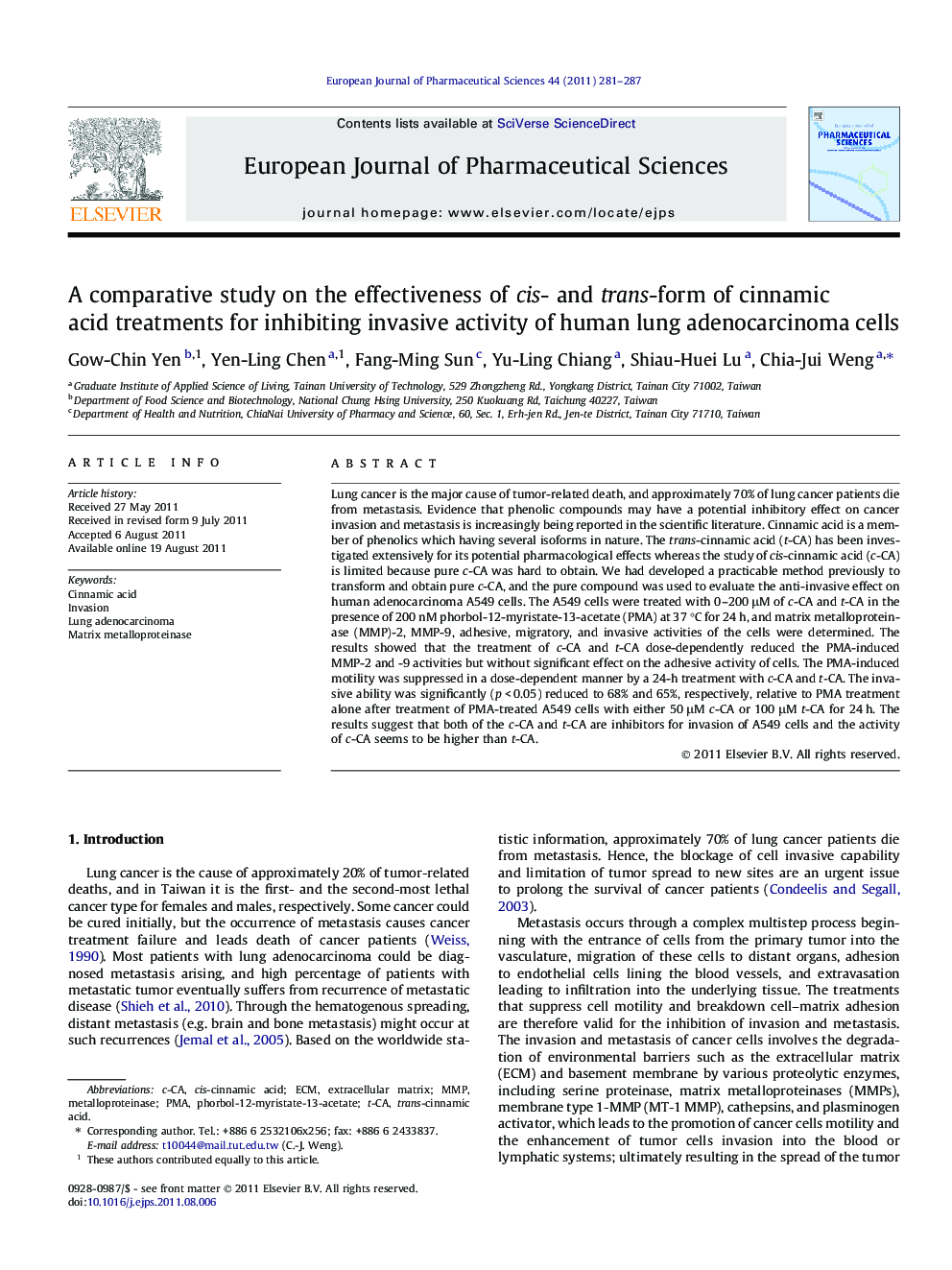| Article ID | Journal | Published Year | Pages | File Type |
|---|---|---|---|---|
| 2480987 | European Journal of Pharmaceutical Sciences | 2011 | 7 Pages |
Lung cancer is the major cause of tumor-related death, and approximately 70% of lung cancer patients die from metastasis. Evidence that phenolic compounds may have a potential inhibitory effect on cancer invasion and metastasis is increasingly being reported in the scientific literature. Cinnamic acid is a member of phenolics which having several isoforms in nature. The trans-cinnamic acid (t-CA) has been investigated extensively for its potential pharmacological effects whereas the study of cis-cinnamic acid (c-CA) is limited because pure c-CA was hard to obtain. We had developed a practicable method previously to transform and obtain pure c-CA, and the pure compound was used to evaluate the anti-invasive effect on human adenocarcinoma A549 cells. The A549 cells were treated with 0–200 μM of c-CA and t-CA in the presence of 200 nM phorbol-12-myristate-13-acetate (PMA) at 37 °C for 24 h, and matrix metalloproteinase (MMP)-2, MMP-9, adhesive, migratory, and invasive activities of the cells were determined. The results showed that the treatment of c-CA and t-CA dose-dependently reduced the PMA-induced MMP-2 and -9 activities but without significant effect on the adhesive activity of cells. The PMA-induced motility was suppressed in a dose-dependent manner by a 24-h treatment with c-CA and t-CA. The invasive ability was significantly (p < 0.05) reduced to 68% and 65%, respectively, relative to PMA treatment alone after treatment of PMA-treated A549 cells with either 50 μM c-CA or 100 μM t-CA for 24 h. The results suggest that both of the c-CA and t-CA are inhibitors for invasion of A549 cells and the activity of c-CA seems to be higher than t-CA.
Graphical abstractFigure optionsDownload full-size imageDownload as PowerPoint slide
